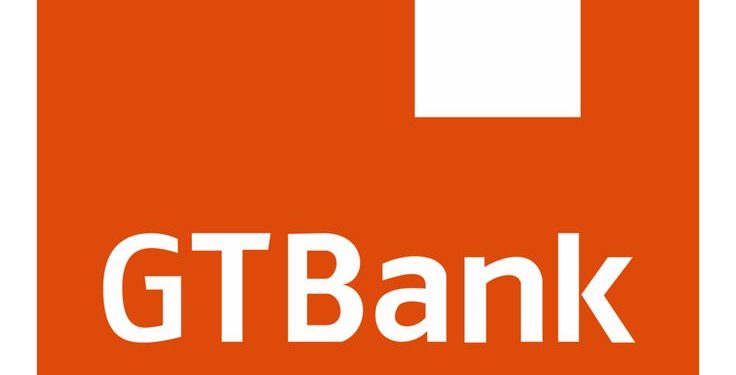Guaranty Trust Holding Company Plc (GTCO) has released its unaudited financial statements for the third quarter ended September 30, 2025, showing a strong rebound in profitability despite a significant increase in loan impairment charges. The Group reported a profit after tax of ₦254.43 billion, representing an impressive year-on-year growth of about 42 percent compared to the ₦179.46 billion recorded in the corresponding period of 2024. Earnings per share also improved to ₦7.54 from ₦6.41 in the prior year, underscoring the Group’s sustained capacity to generate value for shareholders even amid economic and credit headwinds.
At the core of GTCO’s performance was a robust expansion in net interest income, which rose to ₦418.51 billion from ₦362.45 billion in the previous year. This growth was largely driven by higher yields on interest-earning assets and a steady expansion in the loan book, supported by improved pricing on both loans and investment securities. Fee and commission income also remained resilient, rising to approximately ₦305.08 billion from ₦271.81 billion in 2024, reflecting increased transaction volumes across the Group’s digital and payment platforms, as well as stronger contributions from its subsidiaries in asset management and pension operations.
However, the strong top-line performance was partly offset by a surge in loan impairment charges, which rose sharply to ₦88.29 billion compared to ₦28.82 billion in the same period of 2024. This indicates that the Group made significant provisions for expected credit losses in anticipation of potential defaults arising from the prevailing macroeconomic challenges in Nigeria and across its operating markets. The rise in impairments suggests a more conservative risk-management posture, possibly influenced by inflationary pressures, exchange rate volatility, and the lingering impact of subsidy removal on borrowers’ capacity to repay.
Operating expenses also showed moderate growth, with personnel costs, depreciation, and other overheads rising in line with inflation and increased business activity. Despite this, GTCO maintained a relatively strong cost-to-income ratio, supported by its efficient digital infrastructure and continued emphasis on operational discipline. Depreciation and amortization expenses rose to ₦20.20 billion from ₦14.99 billion a year earlier, while personnel expenses remained one of the largest cost components, reflecting the Group’s continued investment in human capital and talent retention.
Profit before tax stood at approximately ₦299.90 billion for the company and ₦254.43 billion for the group after accounting for income tax charges of ₦40.27 billion. This robust profitability highlights the Group’s ability to sustain earnings despite rising credit costs and operating expenses. The result also underscores GTCO’s solid balance sheet, strong liquidity position, and diversified income streams.
On the balance of comprehensive income, GTCO recorded notable movements in fair value and translation adjustments. Other comprehensive income for the period was largely shaped by gains in the fair value of financial assets measured at fair value through other comprehensive income (FVOCI), totaling ₦42.58 billion, partly offset by foreign currency translation losses resulting from exchange rate fluctuations across its foreign subsidiaries. Consequently, total comprehensive income for the Group stood at ₦210.02 billion compared to ₦231.56 billion in the corresponding period of 2024. The majority of this income, ₦211.13 billion, was attributable to equity holders of the parent company, while ₦1.10 billion was ascribed to non-controlling interests.
The strong third-quarter performance reflects GTCO’s strategic focus on optimizing its balance sheet and deepening its earnings diversification through non-banking subsidiaries in asset management, payments, and pensions. It also demonstrates management’s ability to navigate Nigeria’s challenging macroeconomic environment, characterized by high inflation, currency devaluation, and rising funding costs.
Nevertheless, the significant rise in loan impairment charges serves as a cautionary signal. It suggests that credit risk remains elevated across key sectors, necessitating continued vigilance in loan underwriting and recovery efforts. The fair value gains recorded in the period, while supportive of earnings, are largely market-driven and may not be sustainable if market conditions reverse.
Looking ahead, GTCO’s prospects remain positive but measured. The Group’s continued investment in digital transformation and regional diversification positions it to capture emerging growth opportunities across Africa. However, sustaining profitability will depend on its ability to manage rising credit risks, maintain cost efficiency, and adapt to an evolving regulatory and economic landscape.
In conclusion, GTCO’s third-quarter 2025 results reaffirm its reputation as one of Nigeria’s most resilient and efficiently managed financial institutions. The bank’s ability to grow profit and deliver strong shareholder value in the face of rising impairments and macroeconomic volatility underscores its robust risk management framework and strategic agility. As the financial year draws to a close, investors and analysts will be closely watching GTCO’s full-year results for confirmation of this upward earnings trajectory and for further insights into the Group’s strategic outlook for 2026.




















































